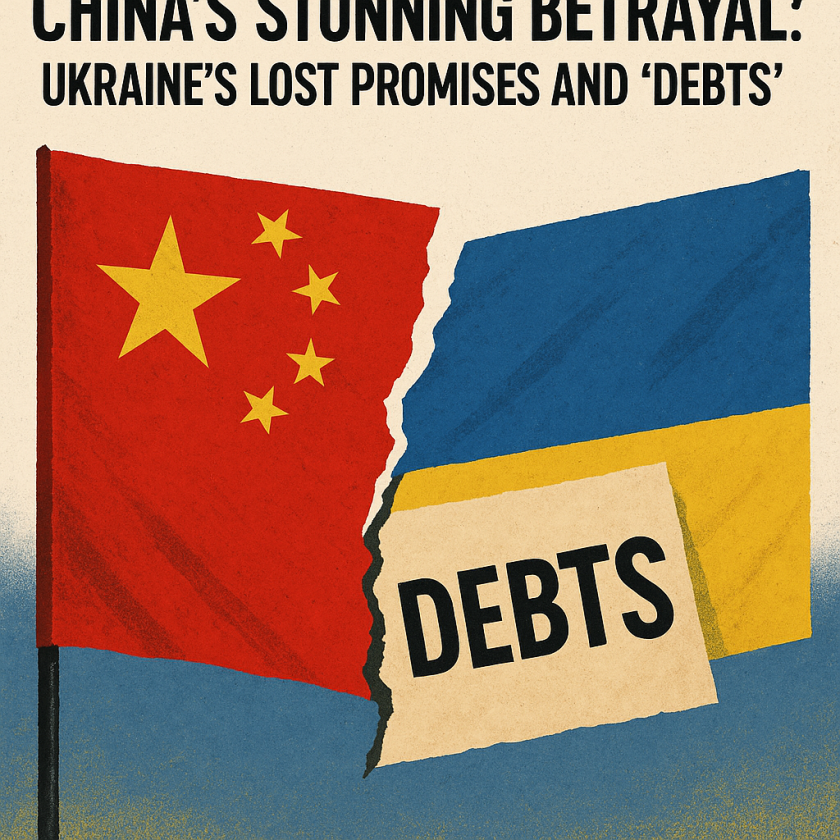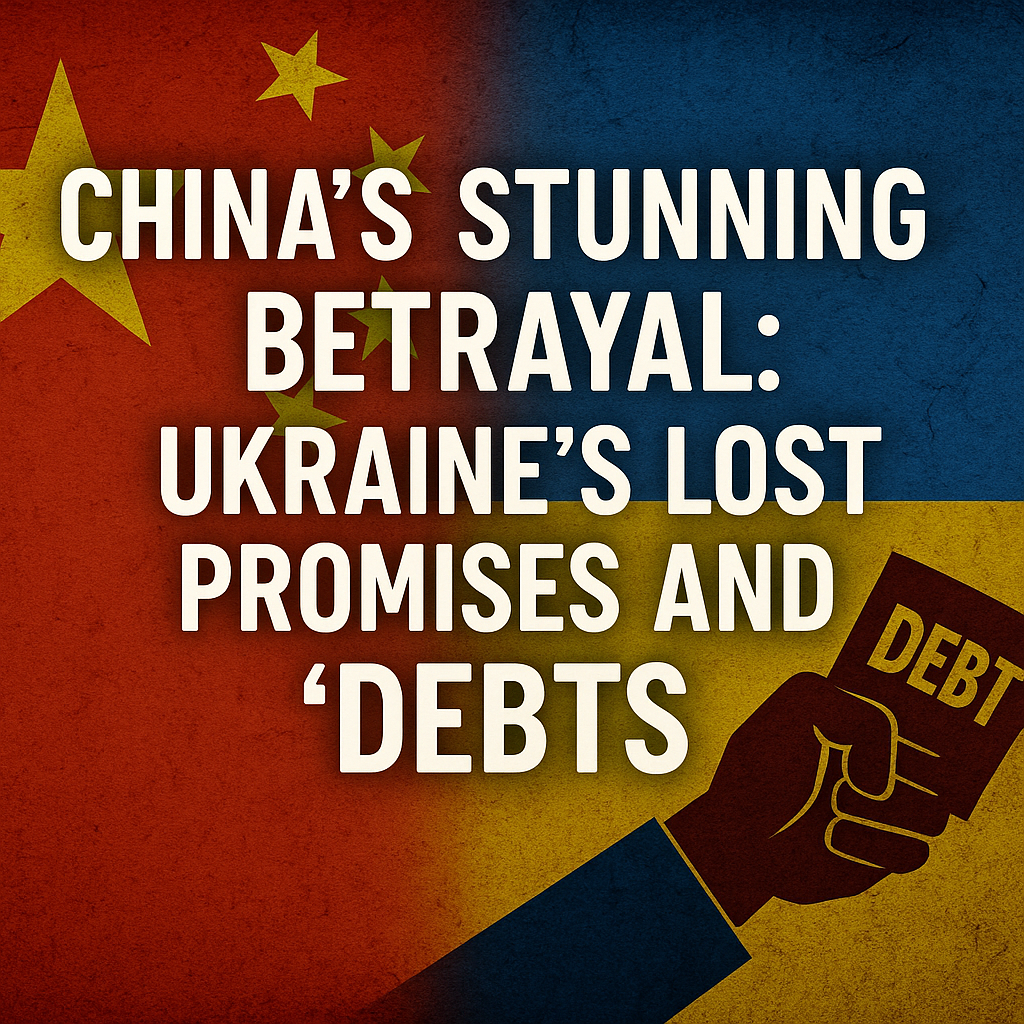China’s Stunning Betrayal: Ukraine’s Lost Promises and ‘Debts’
China’s Stunning Betrayal: Ukraine’s Lost Promises and ‘Debts’
China’s growing engagement in the Ukraine crisis reveals a complex web of geopolitics that challenges the narrative of a stable international order. Initially perceived as a potential mediator or supporter of Ukraine, China’s actions have taken a surprising turn, leading to accusations of betrayal. This article explores the nuances of China’s commitments to Ukraine and how its shifting allegiances have profound implications for international relations.
The Origin of Promises: A Fragile Foundation

In the early stages of the conflict, China positioned itself as a nation that would respect the sovereignty and territorial integrity of Ukraine. Chinese rhetoric emphasized the importance of peaceful negotiations and cooperation, and many anticipated that Beijing could play a role in stabilizing the region. For Ukraine, this was a glimmer of hope; they counted on China’s vast economic resources and political clout to help counterbalance Western sanctions imposed by the United States and its allies.
However, recent developments indicate a shift in this narrative. Reports suggest that China has not only scaled back its support for Ukraine but has also assertively backed Russia’s position in the ongoing conflict. According to Al Jazeera, China’s trade with Russia has surged, and their political rhetoric has increasingly aligned with Moscow, making Ukraine feel abandoned in its hour of need.
Significantly Increased Support for Russia
China’s economic support for Russia has raised eyebrows globally, as the country has become a critical lifeline for Moscow amid crippling sanctions from the West. Some analysts argue that this alignment goes beyond mere economic transactions and reflects a strategic partnership that threatens to reshape the balance of power in the region. For instance, RT news highlights that China’s imports of Russian oil and gas have skyrocketed, indicating a deepened economic dependency.
Moreover, Beijing’s stance in international forums has signaled a clear lack of support for Ukraine. The United Nations has become a battleground for narratives, with China often siding with Russia on crucial votes. This shift has led many in Ukraine to perceive China’s actions as a betrayal of the promises made in the early days of the conflict. It leaves Ukraine grappling with an increasingly isolated position on the diplomatic front.
Weighing the Implications: A Geopolitical Gamble?
The implications of China’s shifting allegiances extend far beyond Ukraine itself. This newfound partnership with Russia signifies a potential reevaluation of alliances in the international arena. Countries that previously sought China’s economic support are now reconsidering their relationships, as they may fear becoming collateral damage in a larger geopolitical chess game.
However, it’s essential to explore the nuance of China’s motives. Is this truly a betrayal, or a strategic realignment in response to geopolitical realities? Some experts argue that China is carefully navigating its position, avoiding direct confrontation with Western powers while simultaneously bolstering its standing alongside Russia. According to Sky News, this kind of balancing act is representative of China’s long-standing desire to project itself as a global power unafraid to take risks.
The Unraveling of Trust
The crux of the issue lies in the erosion of trust. Ukraine’s leadership may feel duped by what they believed were China’s intentions to act as a counterbalance against Western influence. Chinese support was seen as a way to bolster Ukraine’s defense capabilities, but this expectation has not materialized, leaving Ukraine vulnerable.
For ordinary Ukrainians, the perceived betrayal is not just about geopolitical maneuvers; it’s about the human cost of the war. Voices from various news outlets convey a shared sentiment in Ukraine: frustration over unfulfilled promises reverberates through the nation, intensifying feelings of betrayal as their once-reliable ally now appears to be a fair-weather friend.
The Path Forward: Teaching a New Generation of Diplomacy
In light of these developments, Ukraine faces a complex path forward. Relying solely on China’s potentially fickle support may no longer be viable. Instead, Ukraine may need to recalibrate its foreign policy strategies, focusing on strengthening ties with traditional allies in the West while seeking new partnerships with emerging nations.
Moreover, the unfolding situation illustrates a necessity for dialogue among nations, emphasizing that promises in diplomacy can be ephemeral. Countries must learn the importance of forging deeper, more reliable bonds that withstand the pressures of global politics.
In conclusion, China’s apparent shift from a supportive posture towards Ukraine to a more affirmatively aligned position with Russia serves as a reminder that geopolitics is fraught with complexities and uncertainties. As the conflict continues to evolve, so too will the dynamics of international relationships, necessitating a reevaluation of alliances and strategies across the globe. Each nation must contend with the stakes of both loyalty and pragmatism in a world where promises can quickly become debts.






































